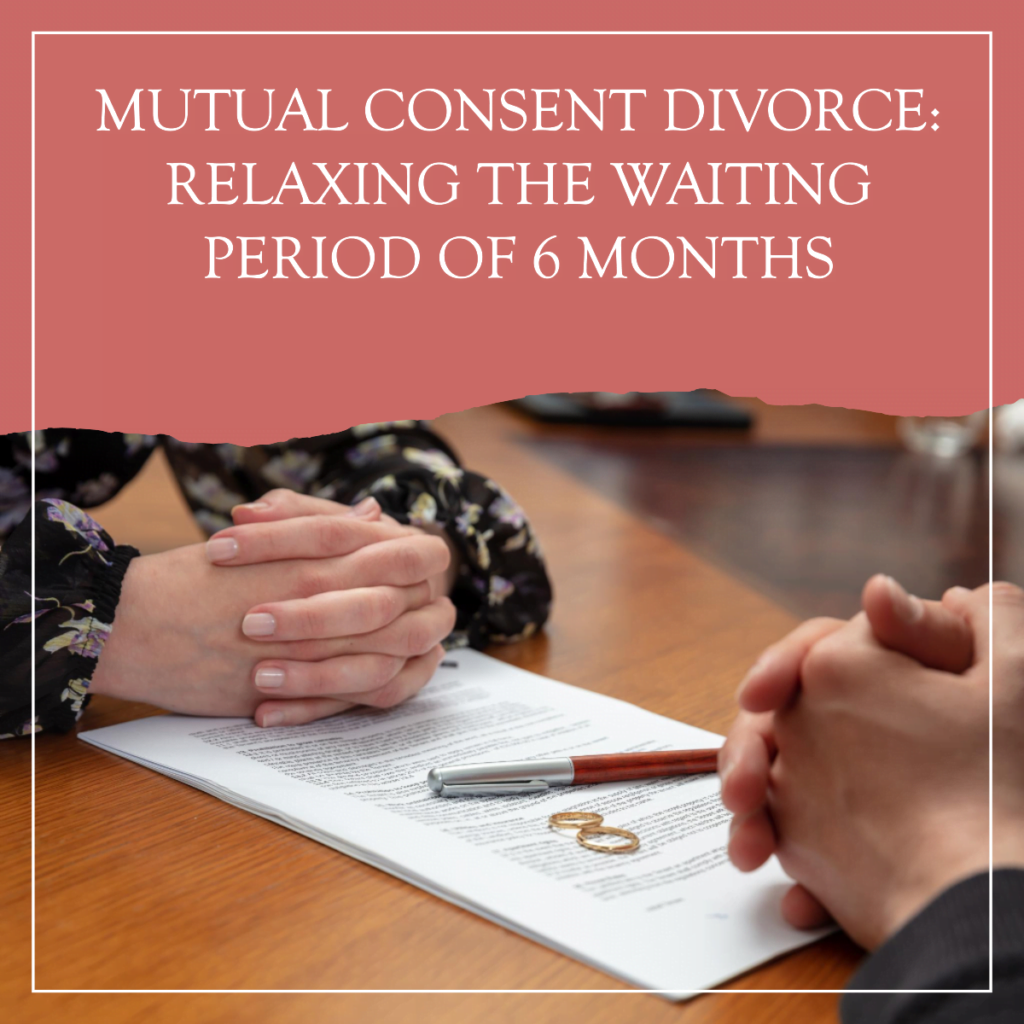
In a recent landmark judgment, the Supreme Court of India clarified the interpretation of Section 13B(2) of the Hindu Marriage Act, 1955, which deals with divorce by mutual consent. Consequently, this judgment holds significant implications for couples seeking divorce in India. Specifically, it outlines the circumstances under which the mandatory waiting period can be relaxed.
Mutual Consent Divorce Before Supreme Court of India
The case in question, Amardeep Singh vs Harveen Kaur Appeal No. 11158 of 2017. AIR 2017 SC 4417: 2017 (8) SCC 746: 2017 (11) SCALE 258: 2017 (180) AIC 192. Involved a couple who had been living separately for several years and had reached a settlement to seek divorce by mutual consent. They sought a waiver of the statutory six-month waiting period, arguing that further delay would only prolong their agony and resettlement prospects.
Key Points from the Judgment:
Mandatory vs. Directory: The judgment clarified that the waiting period mentioned in Section 13B (2) is not mandatory but directory. This means that in exceptional circumstances, the court has the discretion to waive the waiting period.
Criteria for Waiver:
The Court outlined specific criteria to consider when deciding whether to waive the waiting period, including the duration of the marriage. The length of time the parties have been living separately, the status of any pending litigation, mediation efforts, and whether the parties have genuinely settled their differences.
Reconciliation Efforts: The waiting period intends to give parties an opportunity to reconsider their decision and potentially reconcile. However, if reconciliation is not possible, & the waiting period causes further agony. The court can exercise its discretion to grant a waiver.
Video Conferencing:
The judgment also noted that divorce proceedings may allow for video conferencing and the representation of close relatives when parties cannot appear in person for valid reasons.
Implications for Couples Seeking Mutual Consent Divorce:
This judgment provides much-needed clarity for couples seeking divorce by mutual consent. It underscores waiting period flexibility when reconciliation is impossible, preventing further distress caused by unnecessary delays..
Conclusion
The Supreme Court’s 2017 ruling reaffirms its commitment to ensuring fairness and justice in divorce proceedings. Moreover, it acknowledges exceptional cases where the waiting period may be waived, offering couples a chance for better rehabilitation. Therefore, for tailored advice, couples seeking mutual consent divorce should consult legal experts to grasp how this judgment impacts their situation.
For expert legal guidance on divorce and family law matters, consider reaching out to Patil Legal Solutions. With our experienced team of lawyers, we are here to assist you.


Leave a Reply